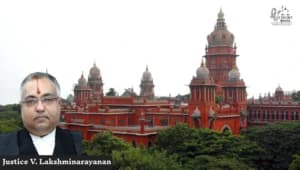In a landmark judgment, the Supreme Court of India upheld the constitutional validity of the Karnataka Motor Vehicles Taxation and Certain Other Law (Amendment) Act, 2003, which repealed the Karnataka Contract Carriages (Acquisition) Act, 1976. The Court clarified that repealing an older law does not require fresh Presidential assent merely because the original Act had received it.
Background of the Case
The Karnataka Contract Carriages (Acquisition) Act, 1976 (KCCA Act) aimed to bring privately owned contract carriages under state control. This law was upheld by the Supreme Court in earlier rulings (State of Karnataka v. Ranganatha Reddy, 1978). However, in 2003, the Karnataka Legislature repealed the KCCA Act through the 2003 Repeal Act, allowing private operators to re-enter the transport sector. The 2003 Act also permitted the Secretary of the State Transport Authority (STA) to issue permits for contract carriages, tourist vehicles, and temporary vehicles.
Read Also:- Supreme Court Questions Tamil Nadu Governor’s Authority in Withholding Bills
The Karnataka High Court struck down the 2003 Act, reasoning that since the original KCCA Act had Presidential assent, its repeal also required fresh assent under Article 254 of the Constitution. This decision was challenged in the Supreme Court by private bus operators and the Karnataka STA.
No Requirement for Fresh Presidential Assent:
The Court rejected the argument that repealing the 1976 Act needed Presidential approval. Justice Vikram Nath, authoring the judgment, stated:
“A repeal statute does not recreate the legal framework anew but rather extinguishes the earlier Act’s operative provisions... provided the repeal falls within the legislative competence of the State.”
Read Also:- Supreme Court Quashes Death Penalty Over Lack of Fair Trial in Madhya Pradesh Case
The Court emphasized that legislative power to enact a law inherently includes the power to repeal it.
Legislative Intent Behind the 2003 Repeal Act:
The 2003 Act aimed to address Karnataka’s public transport shortages by liberalizing the sector. The Court noted:
“The repeal was a deliberate policy decision to rectify inefficiencies and foster competition, not to nullify judicial precedents.”
Read Also:- Arrest is Illegal If Reasons Are Not Communicated Supreme Court Upholds Fundamental Right to Information
Delegation of Permit-Granting Powers Upheld:
The Supreme Court validated Rule 56(1)(d) of the Karnataka Motor Vehicles Rules, 1989, which allows the STA to delegate permit issuance to its Secretary. The Bench clarified:
“Routine permits like contract carriages can be delegated for administrative efficiency, while complex decisions (e.g., stage carriage permits) require collective authority.”
The Supreme Court overturned the Karnataka High Court’s ruling, which had invalidated the 2003 Act. The High Court erroneously conflated the repeal’s procedural requirements with the original law’s enactment. The Supreme Court clarified:
“The Legislature’s plenary power to repeal a law is coextensive with its power to enact it. The 2003 repeal aligned with evolving transport needs and did not undermine constitutional principles.”
Read Also:- SC Upholds Kerala High Court's Direction to Register FIRs on Women's Exploitation in Malayalam Cinema
- Boost to Private Transport Operators: Private players can now operate contract carriages without restrictive state monopolies.
- Administrative Efficiency: Delegating permit issuance to the STA Secretary streamlines processes, reducing bureaucratic delays.
- Clarity on Legislative Powers: States can repeal laws under their legislative competence without fresh Presidential assent, provided the repeal aligns with constitutional mandates.
Case Details
- Case Title: M/S S.R.S. Travels v. Karnataka State Road Transport Corporation Workers & Ors.
- Bench: Justices Vikram Nath and Prasanna B. Varale















